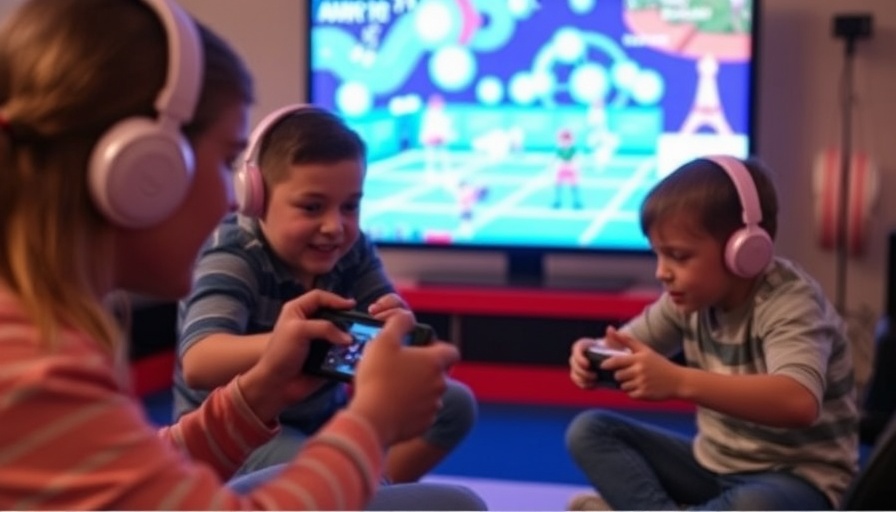
Uncovering the Deterioration of a Gaming Legend
Nintendo, once a bastion of creativity and family-friendly entertainment, has recently faced growing criticism for prioritizing profit over the enjoyment and well-being of its players. This shift has left many parents wondering how to navigate a world where gaming companies appear to place financial gain above the interests of families.
Why Parents Should Be Concerned About Modern Gaming Trends
Many parents find themselves caught in the dilemma of wanting to provide their children with enjoyable gaming experiences while also being wary of the potential pitfalls. Nintendo’s recent practices—such as excessive microtransactions and addictive game designs—pose serious questions about the long-term effects of gaming on children. With studies suggesting a link between video game overexposure and mental health struggles, understanding these trends is crucial for nurturing a healthy gaming environment at home.
Recognizing Signs of Gaming Addiction
As gaming becomes increasingly pervasive in children’s lives, recognizing signs of gaming addiction can empower parents to take action. Look for patterns such as excessive time spent gaming, withdrawal from family activities, or irritability when gaming privileges are challenged. Understanding these symptoms can help maintain a balance between enjoying games and leading a well-rounded lifestyle.
Setting Healthy Boundaries in a Gaming World
Establishing clear and reasonable boundaries around screen time is essential. Start by creating a gaming schedule that not only includes playtime but also incorporates device-free activities. Engaging in family outings, sports, or board games can provide a much-needed counterbalance, allowing your children to enjoy varied experiences outside the digital realm.
Creating a Supportive Environment for Your Children
Open dialogues about gaming can foster a supportive environment where children feel safe discussing their online experiences. Encourage them to share their thoughts on what they’re playing, investigate the content together, and discuss the implications of microtransactions and addictive mechanics. These conversations can help build critical thinking skills and restrict unhealthy gaming habits.
The Importance of Parental Controls
Investing time in learning about available parental controls can significantly help manage your child’s gaming habits. Familiarizing yourself with these tools can empower you to set limits on screen time and control in-game purchases, thus enhancing your child’s gaming experience. Platforms often provide resources for parents to stay informed about potential risks.
Inspiring Change Through Action
Parents can join the conversation regarding gaming regulations and advocate for more responsible practices within the gaming industry. Supporting initiatives that promote healthy gaming and mental health awareness can make a difference. Your voice is important in shaping a gaming environment that prioritizes well-being over profit.
The Path Forward: Gaming Responsibly
In the end, gaming doesn’t have to be an adversary in family life; instead, it can be a tool for creativity and connection. With awareness, communication, and moderation, parents can guide their children toward a sustainable relationship with gaming that encourages growth and well-being. By prioritizing healthy habits, fostering conversations, and calling for industry accountability, we can reclaim the joys of gaming for future generations.
As a final step, consider scheduling a family meeting to openly discuss your gaming dynamics at home. The journey to healthier gaming habits starts with a conversation.
 Add Row
Add Row  Add
Add 




Write A Comment